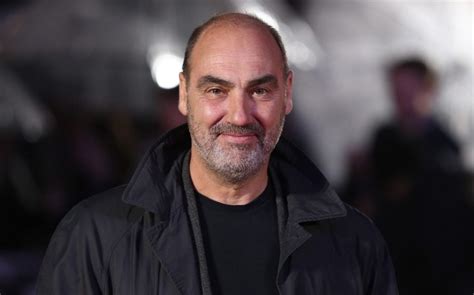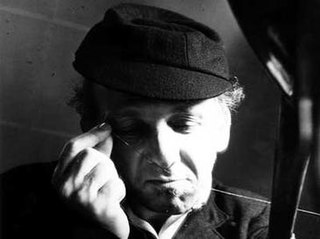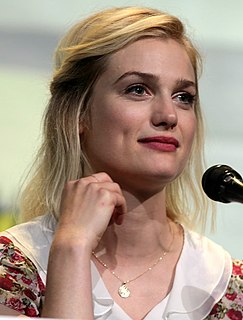A Quote by Oliver Parker
f you're making the scene as a director, you're looking for alternatives, once you've got to that place that's very much in Rowan's [Atkins] head, to see if you can take it further, in some places. Sometimes you do absolutely know there's something there. You just feel it in your bones.
Related Quotes
I feel vulnerable sometimes - when I see an emotional scene, for example - and I remember what it took to get to that place, and I fear sometimes that everybody else can see that. You bare a part of you that makes you uncomfortable. I freely give it, I know, but I feel like people know something about me that I wouldn't otherwise give freely to a stranger.
I do not know what dust is, I do not know where it comes from, I only know that it settles on things. I cannot see it in the air, or watch it fall. Sometimes Im home all day but I never see it sliding about looking for a place to rest when my back is turned. Does it wait til I go out? Or, does it happen in the night when I sleep? Dust is not fussy about the places it chooses, though it seems to prefer still objects. Sometimes, out of kindness, I let it lie for weeks. On some places it will lie forever. However, dust holds no grudges and once removed it will always return, in a friendly way.
What I do is whatever it takes, it takes. Sometimes you see a scene right away and a take looks great so you might print that and you might print a couple more and take elements of all three. It just depends. You're looking for the highlights. You're looking for the best elements of the scene, but preferably you'd like to have one good take that would go all the way through.
Speaking as somebody who's been in the drug scene, it's not something you can go on and on doing, you know. It's like drink, or anything, you've got to come to terms with it. You know, like too much food, or too much anything. You've got to get out of it. You're left with yourself all the time, whatever you do--you know, meditation, drugs or anything. But you've got to get down to your own god and your own temple in your head.
It [the scene] can be something given to you and you go, "Ah this is a good idea, I can work with this." Sometimes it cuts right across your instinct and that's when I might resist. Even if the director might be insistent, I think it's very important to say, "Look, I'm not feeling this. I'll try to make it work but I got to let you know."
The best advice I've got was - "All you have is the process. All you have is the journey of making something. Once you're done you have absolutely no control on how it's received, or if people like it or hate it, or what is done with it. As long as you enjoy the process, then you'll always be happy." I really feel like that's important advice. Sometimes we get so focused on the results that we miss doing it - we miss the adventure of being in the midst of something because we're looking too far ahead.
My editor and I remain very disciplined. It's just sometimes when you're making a film, you get into the cutting room and you see a scene that's slowing you down in a certain section, but if you remove that scene then, emotionally or story-wise, another scene a half-hour later won't have the same impact. You just get stuck with it.
I think one of the things you have to be aware of as an actor is that if you come on the set and see the director standing there mouthing all the words while a scene is going on, that's usually a very bad sign because it means the director has already shot the scene in his head. He knows exactly the rhythm and the nuances that he wants delivered in the line and you're not going to dissuade him.
It's interesting for me to do the commentary with the actors because, as a director, you're so in your own world that you see it from your perspective, your issues and what you were trying to do, and then it's really very fun to hear their perspective on how it was to do a particular scene or how they felt, and sometimes, I didn't even know that, at the time.
Every now and again, something will pop into my head when I'm driving or I'm in the shower, you'll just get an image and it stays with you. It doesn't have to be much, it doesn't have to be a story, it could just be an image. But it won't leave your head and that's when you know you've got something.




































